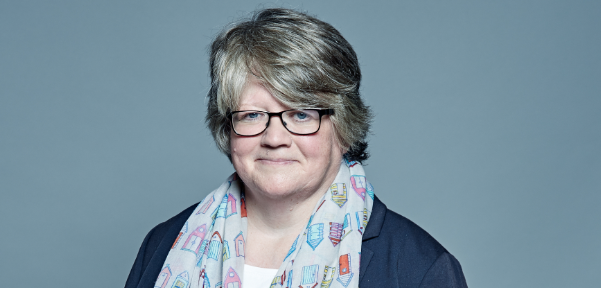Advisers are dubious over whether government commitments to improve access to GPs will prove successful amid soaring demand for virtual GP services from customers.
The commitments feature in health and social care secretary Thérèse Coffey’s (pictured) Plan for Patients which aims to improve access to GPs through ensuring same-day appointments for those that need them and for no-one to have to wait more than two weeks for a routine appointment.
Under the plans, which have been criticised by doctors and think tank The King’s Fund, GPs will be also able to take on extra staff, including senior nurses, while pharmacists will be asked to take on more work to free up appointments.
But advisers Health & Protection spoke to were dubious over whether the targets can be met.
Karen Gittings, senior corporate benefits consultant at LEBC Group, told Health & Protection: “I do not believe that the government’s plans are realistic given the shortage of healthcare professionals and the time it would take to train them.”
Gittings added in her experience virtual GP services have been instrumental in the increase in new to market schemes as employers value the benefit of their employees being able to access a GP consultation quickly.
“When I’m recommending an insurer, clients want more information about the virtual GP service including the number of consultations allowed each year and the length of the consultation,” Gittings concluded.
‘Appeal of remote GPs growing’
Steve Herbert, wellbeing and benefits director at Partners&, questioned how a member of the public was ever going to know whether their ailment is non-urgent.
“Even if they do, then up to two weeks is a lengthy wait for someone to carry on without diagnosis or support – during which time, the condition may be getting worse and leading to longer recovery time or the employee might be unable to work, or more likely working at below their optimum level of productivity,” Herbert said.
According to Herbert, this only strengthens the appeal of remote GP services where access is expected the same day.
“The appeal of remote GP services is growing all the time – as employers are increasingly aware that there are growing delays in this area and, sadly, also in most other areas relating to the NHS at present. And that is before we reach the high usage winter season,” Herbert continued.
“It’s not the NHS’s fault of course – it is down around 5,000 GPs since 2015, and down by around 717 just since the last election. Fewer GPs means fewer appointments and that’s not good for employers or employees.”
Paul Nugent, chief executive of Santé Group, agreed, telling Health & Protection that improving access to GPs was not an “overnight job”.
“I think it’s great to hear this from the government but going on what’s happened in the past and budgets, how quickly is this ever going to happen?” he asked.
Nugent added that most of his firm’s clients make good use of the virtual GP service it provides – including those who work for the company.
“For example one of our team used it this week with a tooth problem. They were away from home, got on to HealthHero who we use, and they got a prescription and referral sorted out.”
‘More political marketing’
Isaac Feiner, owner of Lifepoint Healthcare, told Health & Protection the next step is for all insurers to offer a cash benefit for the provision of visiting private GPs.
“At present only a few select insurers offer this. This would help ease the referral issues clients face,” Feiner said.
“Reading the headlines about the government initiatives on this, I do not believe it is realistic. It is simply not possible to galvanise and recruit and train as appropriate as simply as they say it is. This needs to be planned very well and the rollout will take a while.
“My personal opinion is that this is more political marketing than something that will actually play out as they say.”
